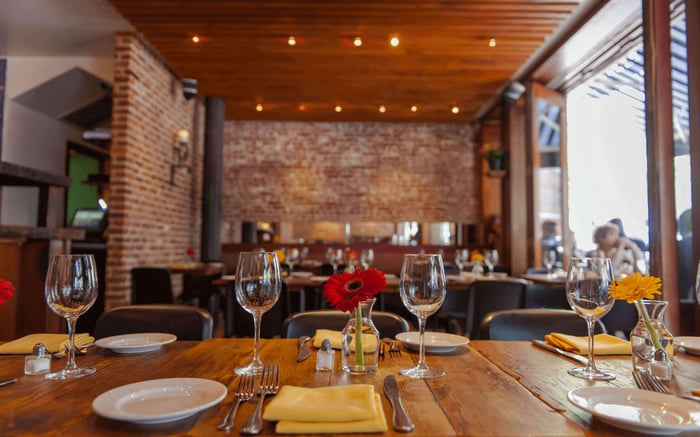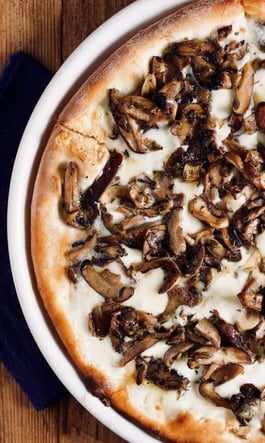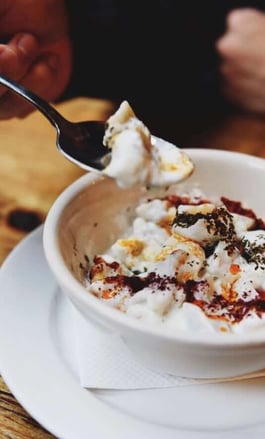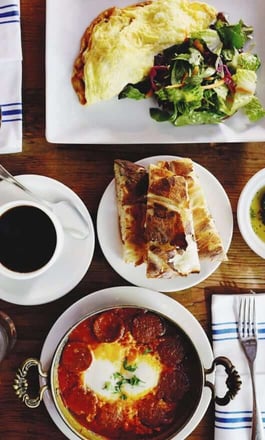What is Baba Ghanoush
Baba Ghanoush is an eggplant dish that originated in Levant cuisine, frequently used for dipping. It is served mostly as an appetizer. The dish contains mainly olive oil and eggplant. Some cultures add in tahini, garlic, and pomegranate concentrate or lemon juice to add depth of flavor. In the Turkish culture, it is called both baba ghanoush and patlican salatasi, which means eggplant salad. Most of the time it is either boiled or broiled until it is soft and then mashed with additional flavors and olive oil. Many cultures serve the mashed mixture with rice, pitas or another type of bread native to their nation.
Baba Ghanoush is eaten in many Middle Eastern countries such as Syria, Lebanon and extending as far as the territorial reach of the Ottoman empire. But Baba Ghanoush also is big in Brazil and West India. Romanians and Greeks also consume the appetizer. Other countries that include this food in their diets are Punjab, West India, Pakistan, Bangladesh and Israel. Many American restaurants do include baba ghanoush on their menus with a modern spin on it. You will see Baba Ghanoush on the menu of Turkish restaurants through NYC.
Preparation of Baba Ghanoush
When it is prepared, most remove the skin of the eggplant so that the texture is silky and smooth. It is then cut into manageable pieces and salted. In order to take some of the bitterness out of the eggplant, place it on paper towels after the salt to sit helps to draws out bitterness. This process takes a couple of hours. If the preferred method is broiling, the olive oil is drizzled over the eggplant. Broiling takes only a few minutes to achieve a soft texture. If the boiling process is chosen, treat it just like potatoes, when it is fork tender it is ready. Once it is done cooking, hand mashing is the preferred method. This is when you would add olive oil, salt and any other flavors to add to the profile of the dish. Eggplant is similar to mushrooms as it takes on a lot of moisture. If it is overcooked the texture can get rubbery rather quickly. After it is mashed, adding in too much liquid will give it a gummy texture which is not a pleasing texture.
Flavorings
Every culture has a different blend of herbs and spices that they prefer to add to baba ghanoush. Indian cultures typically add curry while Greeks are likely to add olives or mint. The good thing about this dish is that it is versatile and a large variety of flavors match well with eggplant. Creating a dish that is unique is very easy. Adding in roasted tomatoes or roasted red peppers adds a bright dimension to it.
History of Baba Ghanoush
While the actual location of origin is somewhat argued, both Levantine and Lebanese cultures to claim ownership of origination. The question is which culture had access to eggplant first since the origin of eggplant is India. In several traditions, baba ghanoush is served as the first course in a large family meal. It is also a common appetizer at holiday events in these cultures as well.
Vegetarian Friendly
Vegetarians do use this as a staple in their diets. It is such a versatile dish that making it your own is simple by just experimenting with flavors. Finding baba ghanoush already prepared is almost unlikely. Since it is made from fresh vegetables and without preservatives, it does not keep long nor does it ship well. It is always best to make your own at home or find a local restaurant that serves it.







